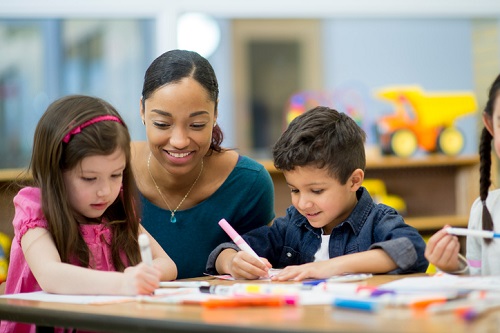
Last year, a survey of WA teachers found that a vast majority want policymakers to implement a greater focus on Play-Based Learning (PBL) in early childhood classrooms.
More than 70% of the 617 respondents surveyed by the State School Teachers’ Union of WA (SSTUWA) said they experienced difficulties in trying to implement a PBL curriculum and 80% supported more PBL in early childhood classrooms.
Director of Early Childhood Education at Murdoch University, Dr Sandra Hesterman, used the responses from last year’s survey as the basis of a research paper, The State of Play in WA, also released today.
Recommendations from the research paper include early childhood teachers being consulted on PBL pedagogies and Early Childhood Education (ECE) curriculum development, the provision of professional learning on PBL to non-ECE teachers and school leaders and for a review on reporting requirements for ECE.
The union is now urging the state’s government to “act immediately and decisively” to secure PBL practice in the early years of WA schooling.
SSTUWA president, Pat Byrne, said play based learning was vital in utilising children’s play as a context for learning.
“It is recognised as a highly effective building block in bringing children’s learning to a higher level, it stimulates children’s cognitive, emotional and social development,” Byrne said.
“Evidence based research shows that adult involvement in children’s play can extend learning opportunities within the play itself, through the provision of developmentally appropriate play experiences.”
A growing body of research shows that PBL has far reaching benefits for children, including improved academic outcomes, wellbeing, creativity, problem-solving and social skills.
“The biggest issue we have is many people see PBL as “just play”, but this is not the case,” Byrne said.
“PBL is when the teacher sets up an environment with a range of activities that spark open-ended inquiry experiences and allow the child to explore what interests them, with the teacher playing a supporting role in facilitating learning when required.”
In his new book, titled ‘Let the Children Play’, Finnish educator, author and scholar, Pasi Sahlberg, argues that “more play will save our schools and help children thrive”.
“Educators and paediatricians both agree that play is important for children’s development and learning,” Sahlberg told The Educator.
However, he pointed out that teaching and learning have been heading in the opposite direction: more pressure on effort and achievement for both teachers and students, longer school days and more homework.
“One reason why this is happening in so many places may be what I call the Global Education Reform Movement that is driven by the market logic of completion and choice, standardised solution, and faith in improvement by measuring all possible elements in education,” he said.
“When outcomes don’t seem to improve, the problem is believed to be in inappropriate implementation of this logic. More play has rarely been an alternative remedy for disappointing results.”


